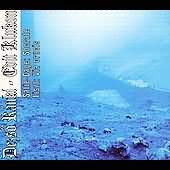Looking for two large-scale vocal works about iconic visionary leaders condemned to death for stupid reasons (Socrates and Jesus), but minus the singing? Then consider this disc. John Cage made a very effective arrangement of Erik Satie’s Socrate for two pianos. He deployed Satie’s original piano reduction between the instruments while replicating the vocal line mostly in unison octaves across different registers. Minus the words and the declamatory detachment of Satie’s text-setting style, the music itself harbors little drama, and its pretty harmonies unfold at a comfortable amble.
Without a choir and the sustained lungpower of a mighty organ, Liszt’s Via Crucis (based on the 14 Stations of the Cross) comes off as a bleak and immobile pageant where chant-like single lines alternate between statuesque block chords and tremolos. Yet moments occur when the impact of piano hammers on strings makes a palpable difference, such as Station 11’s pounding chords that represent Christ being nailed to the Cross.
Pianists Dezso Ranki and Edit Klukon obviously believe in these arrangements and they play them scrupulously well. Isolated chords are dictated and voiced with frightening unanimity, melodies seamlessly float from one instrument to the other, and rubatos are timed to the nanosecond. These qualities are far more difficult to achieve than they sound. BMC’s engineering is bright and clear, while Klukon’s booklet notes confirm that she’s a better pianist than philosopher.
































